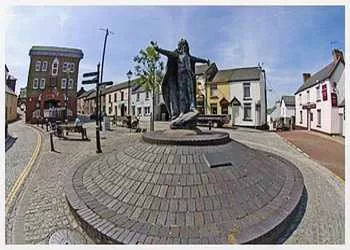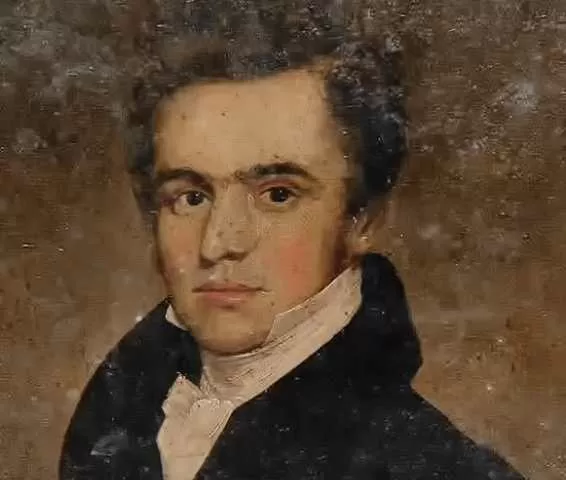Explore the eccentric life of William Price, the Welsh doctor who, on this date in 1884, challenged societal norms, legalizing cremation, and leaving an indelible mark on history. Discover his legacy in Llantrisant, Wales, where a statue commemorates his unconventional contributions.
Table of contents
William Price
In the intricate tapestry of history, certain anniversaries touch upon tales both unusual and poignant. On this date in 1884, Welsh doctor William Price stood at the center of a groundbreaking legal precedent, forever altering the landscape of funerary practices and challenging societal norms. This extraordinary story unfolds against the backdrop of an eccentric man, Welsh nationalism, Druidic beliefs, and a tragic event that sparked a revolution in the way we bid farewell to our departed.
The Unconventional William Price:
William Price, a Welsh doctor with a penchant for the unconventional, left an indelible mark on history. Known for his fervent advocacy of Welsh nationalism, social justice, and equal rights, Price was a man ahead of his time. His sartorial choices were as distinct as his beliefs, adorned in green with a fox hat, his hair and beard flowing freely. However, it was his disdain for established customs like marriage and traditional burials that would lead him to a momentous legal battle.
The Tragedy of Iesu Grist:
In a heart-wrenching turn of events, Price’s infant son, named Iesu Grist (Welsh for Jesus Christ), succumbed to fate. For a man who rejected in-ground burials, Price faced the challenge of laying his beloved son to rest. Rejecting conventional burial practices, Price attempted to cremate his son, sending shockwaves through his community and drawing the ire of an angry mob. The police intervened, not to quell the crowd but to arrest Price for what they perceived as an illegal disposal of a corpse.
Legal Precedent and the Cremation Revolution
Defiant in the face of societal norms, Price, during his court appearance on this date in 1884, argued a compelling point. While there was no law explicitly permitting cremation, he asserted that there was also no law prohibiting it. The judge, swayed by this unconventional argument, ruled in Price’s favor, setting a legal precedent for cremation. This decision paved the way for a transformative shift in funeral practices.

where Price lived much of his later life.
Advocacy Beyond the Unconventional
Beyond his unorthodox approach to burial, Price was a champion for workers’ rights, aligning himself with causes that echoed his commitment to social justice. His advocacy extended beyond the realm of cremation, earning him admiration from a considerable portion of the population.
The Cremation Society and Legal Recognition
The aftermath of Price’s legal victory witnessed a surge in support for cremation. In the following years, the Cremation Society of Great Britain was founded, marking a collective step toward embracing an alternative to traditional burials. By 1902, Great Britain passed the Cremation Act, cementing legal recognition for this evolving funerary practice.
Legacy in Stone
Today, a statue of William Price stands tall in Llantrisant, Wales, the very land where he spent much of his later life. A testament to a man who, in his eccentricity, left an indelible legacy that transcends time.
Conclusion: Celebrating Unconventional Legacies
As we reflect on this historical anniversary, we celebrate the life of William Price—a man whose unconventional beliefs and actions spurred societal change. His pivotal role in legalizing cremation not only provided an alternative to age-old burial practices but also stands as a testament to the power of challenging norms and paving the way for progressive societal shifts.

